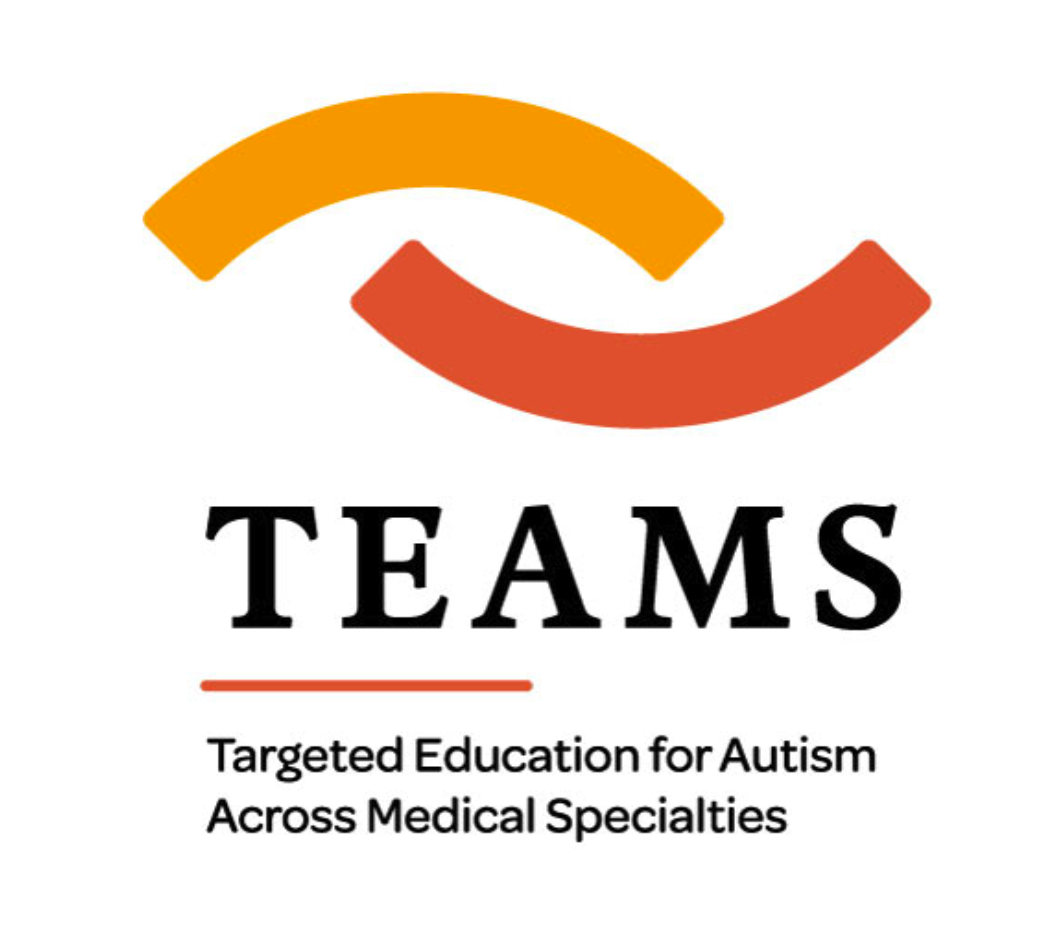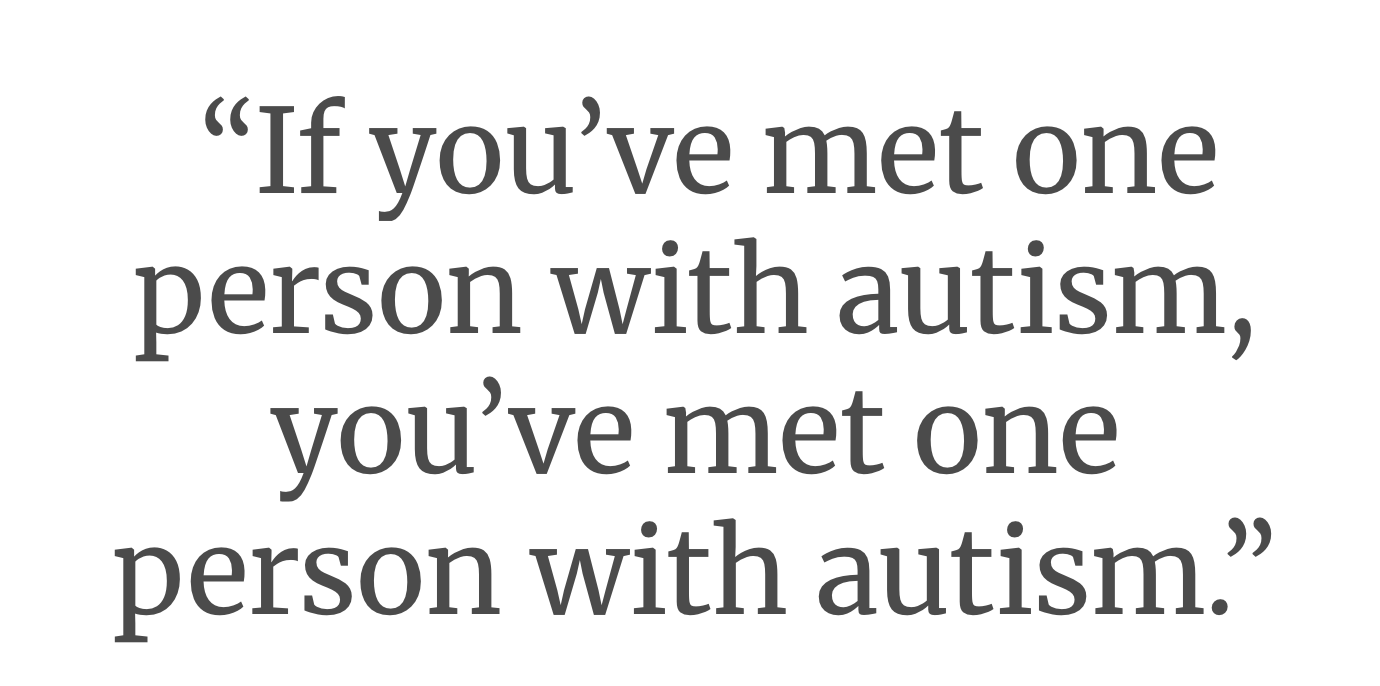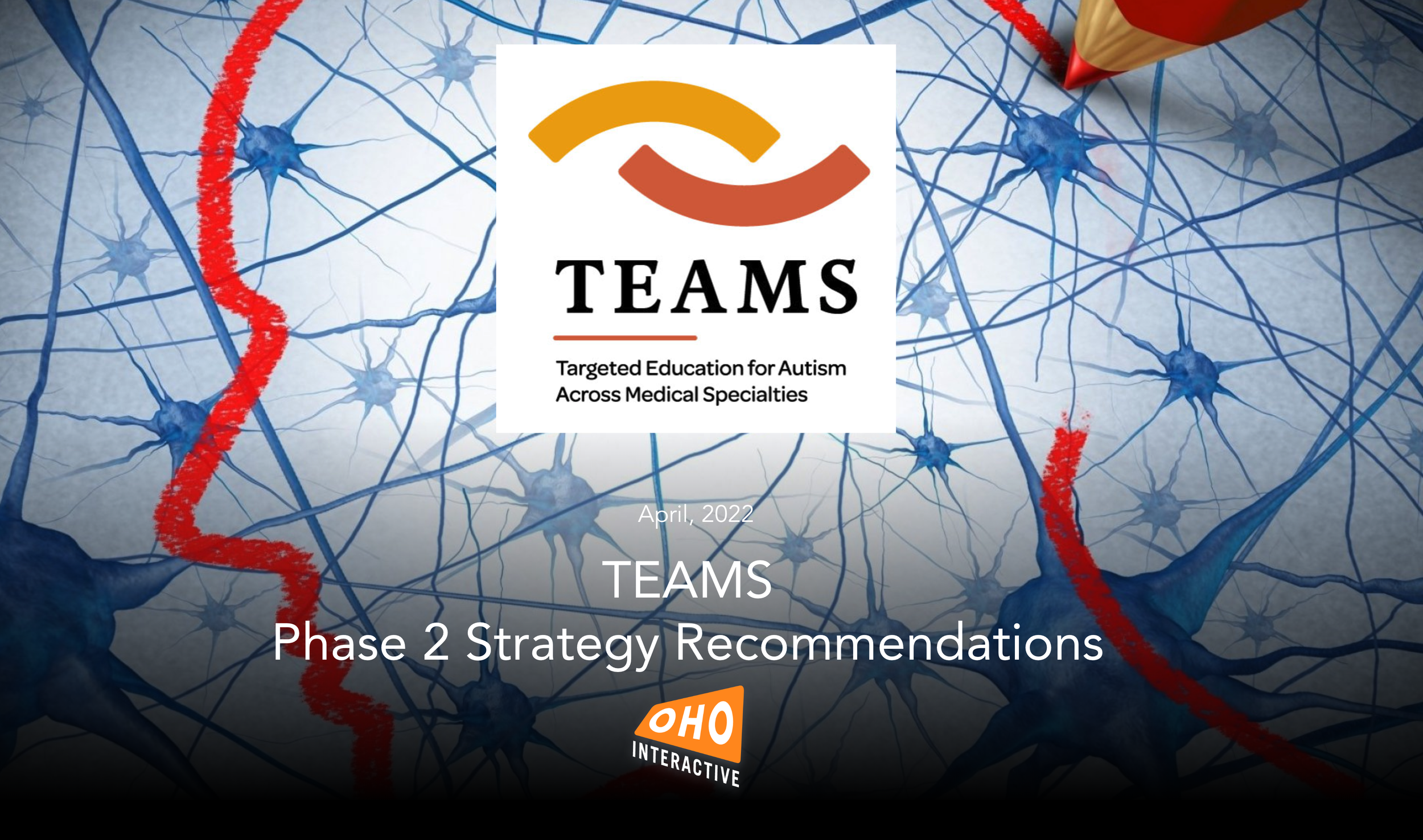After Harvard Medical School launched the first phase of its TEAMS project — an initiative to better support autistic individuals across their lifespan — I was invited to help shape the research and strategy for phase two. Building on prior collaborations with Harvard, I focused on one of the project’s most critical questions: How can we better understand and serve the needs of autistic adults?
The Challenge
TEAMS — Targeted Education for Autism Across Medical Specialties — is a collaboration between Harvard Medical School and the Nancy Lurie Marks Family Foundation.
At the heart of TEAMS is a crucial reality: while abundant resources exist for autistic children, far fewer address the needs of autistic adults. Yet autistic adults face enormous challenges in healthcare, housing, employment, and daily living — challenges that too often go unmet.
My role was to conduct ethnographic interviews with autistic adults across a wide spectrum of experiences. Each conversation was unique. Communication styles varied widely, and it was essential to adapt quickly and respectfully.
Methods: Acting, Improvisation, & Empathy
Here, my training in acting and improvisation became an asset. Each interview began as a kind of improvisation exercise: I had goals for the conversation, but I had to remain flexible, listening deeply and following each participant’s lead. The improv principle of “Yes, and then…” guided my approach — accepting what was shared, then gently moving the dialogue forward.
This approach not only kept the conversations flowing but also helped participants feel safe, respected, and understood. It demanded listening on a different level: projecting myself into my interviewee’s mindset, empathizing broadly, and confirming their key points so they felt fully heard.
Key Insights
The insights from these conversations were profound:
Being heard mattered most. Many participants expressed deep gratitude simply for the opportunity to share their experiences.
No two experiences are the same. As one participant said: “Once you meet one autistic person, you have met one autistic person.”
Gaps in training are urgent. Few clinicians, housing administrators, or HR professionals are equipped to meet autistic adults’ needs — contributing directly to health disparities and shortened lifespans.
Strategic Recommendations
These insights shaped clear recommendations for TEAMS to expand and refine its impact:
Build a unified online hub that serves four key groups: autistic individuals, families, healthcare professionals, and service providers.
Ensure that resources reflect authentic autistic perspectives, not just professional expertise.
Provide practical, accessible tools — from healthcare navigation to “life hacks” that make daily living easier.
Reflections
Professionally, this project stretched me to integrate research, strategy, and improvisation in new ways. Personally, it reinforced the power of listening deeply and the urgent need to elevate autistic voices.
For me, the TEAMS project is more than strategy — it is a model of inclusive, empathetic design that can influence how healthcare and services are delivered for autistic adults nationwide. My hope is that this work sparks broader change, ensuring autistic adults are not overlooked but fully supported throughout their lives.
Jim Dalglish, Director of UX Research & Strategy
About the Author
Jim Dalglish is a strategist and researcher who helps organizations turn complexity into clarity. He specializes in qualitative insight, user experience, and the responsible use of AI in research. He’s worked across sectors — from education and healthcare to SaaS and the arts — and is passionate about making data more human.
When he’s not building GPTs or synthesizing interviews, you’ll probably find him writing plays, sailing his sailboat, or walking the Cape Cod coastline.
My Resume >>
My Portfolio >>





